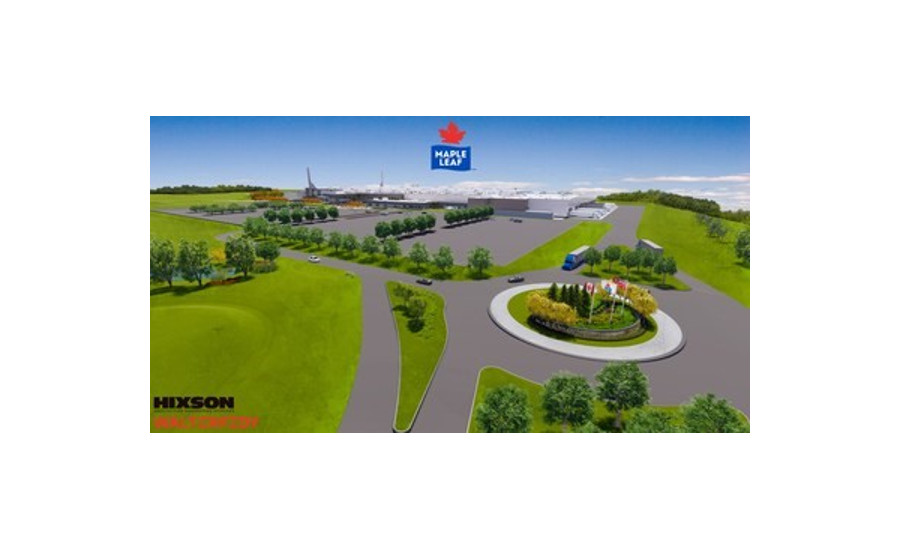Maple Leaf Foods to construct world-class, value-added poultry facility
The new 640,000-square-foot facility is said to be one of the most technologically advanced poultry processing plants in the world.

Maple Leaf Foods, Canada, announced plans to build a $660 million value-added fresh poultry facility in London, Ontario, Canada.
Hixson Architecture & Engineering, Cincinnati, and WalterFedy, Canada, are working together to create the new 640,000-square-foot facility, what is said to be one of the most technologically advanced poultry processing plants in the world, with leading-edge food safety, environmental and animal welfare processes and technologies. Funding for the project includes a capital investment of approximately $605.5 million from Maple Leaf Foods, an investment of $34.5 million from the Government of Ontario and a $20 million investment from the Government of Canada under the Strategic Innovation Fund. In addition, the company is receiving an $8 million loan from the AgriInnovate Fund. As part of the federal funding agreement, Maple Leaf will invest a further $5 million over the next five years on projects that accelerate adoption of advanced manufacturing and production technologies and support the company's goal to reduce its environmental footprint by 50% by 2025.
"This world-class facility will enable Maple Leaf to meet the steadily growing consumer demand for premium, value-added poultry products and strengthen Canada's food system," says Michael McCain, president and CEO. "It will incorporate leading edge food safety, environmental and animal care technologies that advance our vision to be the global leader in sustainable protein. This is a historic investment in the Canadian poultry sector, providing significant stakeholder and economic benefits and ensuring that Canada has sufficient domestic processing capacity to meet forecasted poultry production and demand."
Construction at the London, Ontario, site is expected to begin in the spring of 2019, with start-up planned to commence in the second quarter of 2021. The new plant will initially support over 1,450 direct full and part-time jobs, with additional job growth as production volumes increase over time. Construction is expected to generate approximately 300 jobs, with almost 85% of project expenditures supporting domestic construction and installation contractors. The facility is expected to create a further 1,400 indirect jobs in the supplies and services sector and generate an estimated $1.2 billion of annual economic activity once fully operational.
Production from the company's three sub-scale and aging plants in Ontario, Canada, will eventually be consolidated into the new facility. For instance, the St. Marys, Canada, plant is expected to close by late 2021, while its plants in Toronto and Brampton are expected to close by mid-late 2022. Each of these plants are 50-60 years old, with location, footprint and infrastructure constraints that limit opportunities to expand and modernize.
"We deeply regret the impact that these eventual closures will have on our people and communities," says McCain. "While these closures are several years away, we are informing our people well in advance, allowing us to openly communicate and support them through this long-term transition. We will provide them with job opportunities at the new facility and other Maple Leaf plants and services to help them eventually secure new employment."
Looking for a reprint of this article?
From high-res PDFs to custom plaques, order your copy today!





